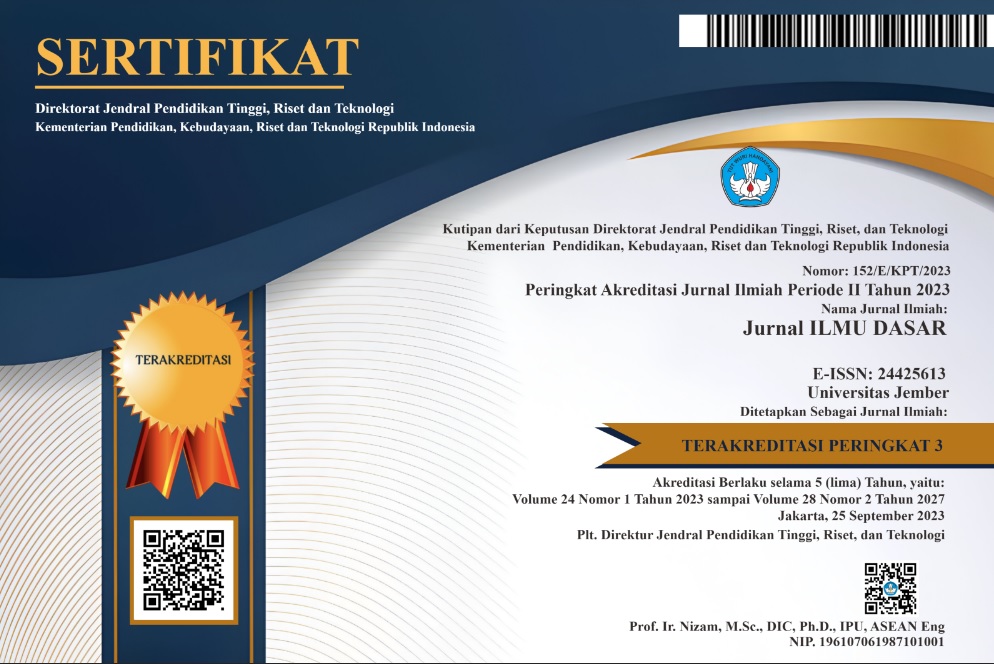Regression for Exploring Rainfall Pattern in Indramayu Regency
Keywords:
Quantile, quantile regression, cluster, rainfallAbstract
Quantile regression is an important tool for conditional quantiles estimation of a response Y for a given vector of covariates X. It can be used to measure the effect of covariates not only in the center of a distribution, but also in the upper and lower tails. Regression coefficients for each quantile can be estimated through an objective function which is weighted average absolute errors. Each quantile regression characterizes a particular aspect of a conditional distribution. Thus we can combine different quantile regressions to describe more completely the underlying conditional distribution. The analysis model of quantile regression would be specifically useful when the conditional distribution is not a normal shape, such as an asymmetric distribution or truncated distribution. In general, rainfall in Indramayu regency during 1972-2001 at 23 stations is highly variable in amount across time (month)andspace. So,the first objective of the research is reducing the variability in space using classification of the rainfall stations. The second objective is modelling the variability in time using quantile regression for every cluster of rainfall stations. The result shows that there are two clusters of rainfall stations. The first cluster has higher amount of rainfall than the second cluster. The coefficient of quantile regression for quantile 50 and 75 percent are similar, but for quantile 5 and 90 percent are very different. Exploring pattern of rainfall using quantile regression can detect normal or extreme rainfall that very useful in agricultural.








